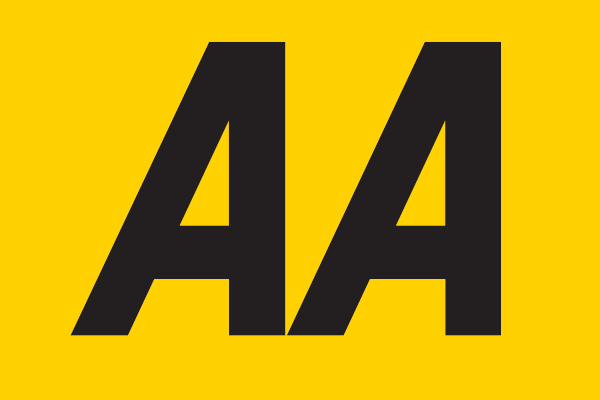Motor Insurance
Motor Insurance: How to Complain About Insurance Companies
If you are having problems with your car insurance provider, there are ways for you to complain and seek compensation. Read our helpful guide for the best tips on how to avoid motor insurance complaints and what to do if you ever have them.
Search for a Company to begin a Claim
Why do consumers complain about car insurance companies?
There are many reasons why a customer may complain about their motor insurance company. For example, the repair work on their car may have been done poorly; a policy may have been renewed without their consent or policies may have been mis-sold without clear explanation.
When a consumer makes a complaint, the insurance company will investigate the claim to decide if they will award compensation.
Avoiding insurance complaints
Each year, many people get into a disagreement with their car insurance provider. If the insurance provider and the consumer are not able to agree on a solution, the Financial Ombudsman Service can step in to help deal with and resolve insurance complaints.
The best way to deal with insurance companies is to try your best to avoid complaints arising. Here are some helpful tips on avoiding common motor insurance complaints.
Repairs complaints
Many consumers are not satisfied with the quality of repair after an accident. To avoid this in future, it is essential to know how long your insurance company will guarantee repairs and if they will be responsible for them.
Look into your policy beforehand. If the insurance company says they will arrange any repairs, then they will be responsible for making sure it is carried out correctly. On the other hand, if the insurance policy only offers reimbursement for the costs of repairs, then the insurer is not responsible for poor repairs.
Read all of the policy document, so you know who is responsible for repairs beforehand. Knowing this will help in the event of needing to have repair work done on your vehicle.
Valuations complaints
Many customers complain about their insurance company because they feel they received a low valuation for their motor. In most cases, this happens when a car is severely damaged, and the insurance company declares it a ‘total loss’. This is also known as writing off the vehicle, meaning that it is not worth a repair.
When this happens, the owner has the right to be given an amount of money that is equal to the motors value before the damage, instead of the original cost of the car. However, if you receive a low valuation, you won’t receive the amount you are due. If you suspect this, you have the right to challenge your car insurance company.
You can avoid this by using gap insurance or car depreciation insurance which will cover the difference between the values of the motor before damage and at the time the gap insurance was bought.
It is helpful to buy gap insurance cover if you have an expensive vehicle or to help cover finance payments for your car if it gets damaged.
Rejected claims complaints
An insurance company can refuse to pay a consumer for their claim if they believe that the consumer did not inform them about any vehicle modification. This is called a non-disclosure.
To avoid this in future, make sure to always tell your insurance provider about any modifications. Check with the insurance company beforehand to know what is classed as a modification and make a note of it before you buy an insurance policy.
Renewal complaints
Most of the time, a policy will be renewed without any further questions which can lead to claims on refused policies. If an insurance company tries to claim a consumer did not disclose relevant information, then they must prove that they initially asked questions before they renewed their policy.
On the other hand, consumers are also expected to tell their insurance company about any changes to their driving conditions.
How to complain about insurance companies: step by step
If you want to make a complaint about your insurance company you can follow these simple steps to help guide you through the process.
1. Resolve your complaint informally
To start, try to resolve your insurance complaint informally with the company. Make a phone call to the helpline or customer service department and see if they will resolve your claim for you. Be sure to note details of when you called, who you spoke to and what the outcome was in case you need to complain in writing.
Insurance brokers can also make complaints on behalf of customers. So if you bought through an insurance broker ask them to help you deal with your complaint.
2. Write a formal complaint to your insurance company
If you were not able to resolve your motor insurance complaint informally, then you can write a formal complaint to the insurance provider. All insurance providers should lay out their formal complaints procedure for consumers to follow if they have any disputes. This should tell consumers how to complain, who they should contact and when they will receive a response. This procedure should be on the insurance company’s website, but if you can’t access it, then you should ask them for it.
When writing a formal letter of complaint make sure to mark the letter with a complaint. Put the date to start with and then provide your name and policy number. Write your complaint, telling the company what happened and why you are unhappy with it. Include any forms of evidence that will support your claim and what you would like the company to do for you. Note that if unsatisfied with their response then you can take your claim to the Financial Ombudsman Service.
3. Complain through the Financial Ombudsman
If you are not satisfied with the response from your insurance company, then you can complain to the Financial Ombudsman Service (FOS).
What is FOS?
The Financial Ombudsman Service helps to settle disagreements between customers and financial organisations including insurance companies. It is free to use service; however before you can use them, you must have already followed your insurance company’s complaints process. If you have not already done so, then they will be able to give you advice and will only act for you after you get a response from the insurance provider or after eight weeks.
What power does the Financial Ombudsman have?
The FOS will look at your case based on the facts you give them. They will consider your story and also contact the insurance company for their side of the story to judge fairly. They can accept or reject your complaint and also help you resolve the issue with your insurance company.
The FOS has powers to give up to £150,000 in compensation against your insurance provider. If they do decide in your favour and deem you have been poorly treated, they can make the insurer: apologise and explain their actions to you or offer monetary compensation.
Initially, the complaint will be considered by an ‘adjudicator’ however if either party is not satisfied with the result then it can be taken to an ‘ombudsman’. The ombudsman will make a final and binding decision on your insurance provider.
If you are still not happy, then you can take your claim to the small claims court. However, it is important to note that this may be expensive and the court can also consider the ombudsman’s prior judgement.
Related Information
Narrow down your search by choosing one of the sub-categories below:






























































































































